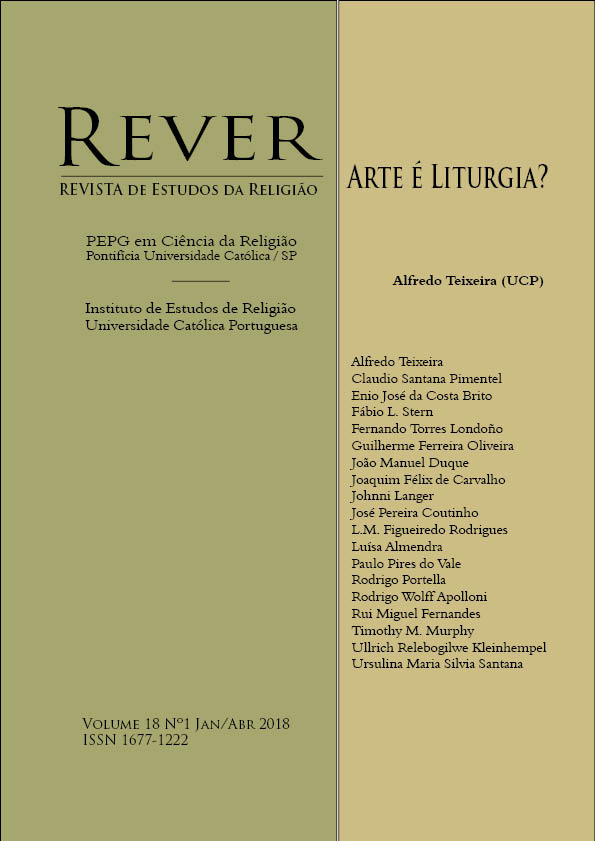Portuguese translation of Timothy Murphy's "Religionswissenschaft as colonialist discourse: the case of Rudolf Otto"
DOI:
https://doi.org/10.23925/1677-1222.2018vol18i1a15Keywords:
Rudolf Otto. Colonialism. Study of religion. Phenomenology of religionAbstract
The dominant approach to the study of religion known as the phenomenology of religion’s core assumption was that underlying the multiplicity of historical and geographically dispersed religions was an ultimately metaphysical, trans-historical substratum, called “man”, Geist, or “consciousness”. This transhistorical substratum is an expressive agent with a uniform, essential nature. By reading the data of religion as its “expressions”, it is possible to sympathetically understand their meaning. Geist, or “man”, then, is both a philosophy of history and a hermeneutical theory. It also forms a systematic set of representations, which replicate the structure of the asymmetrical relations between Europeans and those colonized by Europeans. The metanarrative of Geist is a narrative of the supremacy – their term, not mine – of white, Christian Europe over black, “primitive” Africa and “despotic” Asia. Spirit moves from the South to the North; away from the East to the West. This paper locates Rudolf Otto’s work within the structure and history of phenomenological discourse and argues that the science of religion as described there conforms nearly perfectly to the structures of colonial discourse as this has been discussed and analyzed by theorists such as Jacques Derrida and Edward Said.
Downloads
Published
Issue
Section
License
Authors who publish in this journal agree with the following terms:- Authors retain copyright, but grant the journal the right of first publication, with the work simultaneously licensed under the Creative Commons BY-NC License.
- Authors are authorized to assume additional contracts separately, for non-exclusive distribution of the work published in this journal (e.g., publishing in an institutional repository or as a book chapter), as long as with acknowledgment of authorship and first publication in this journal.


